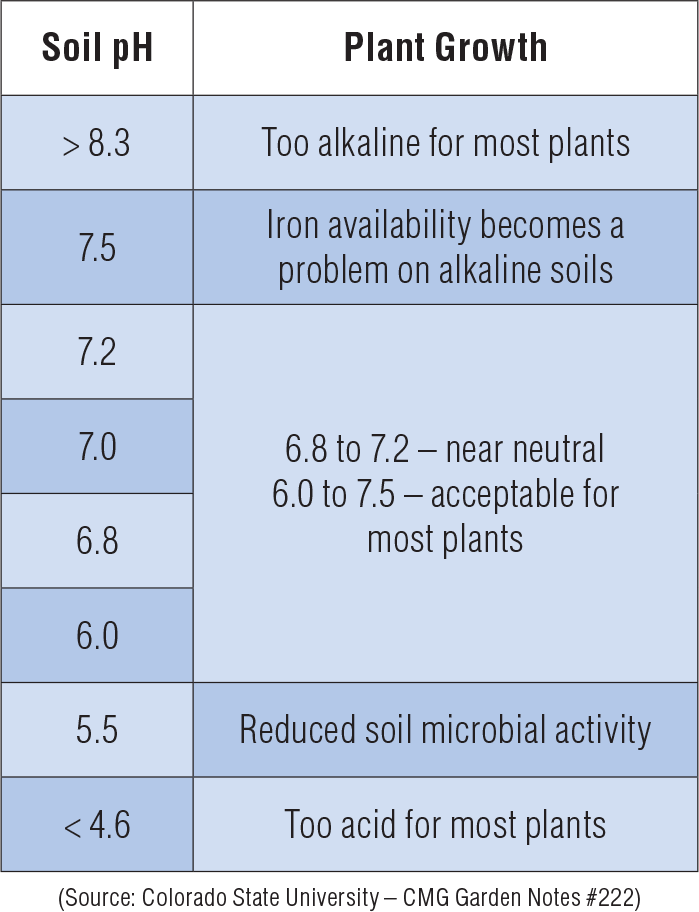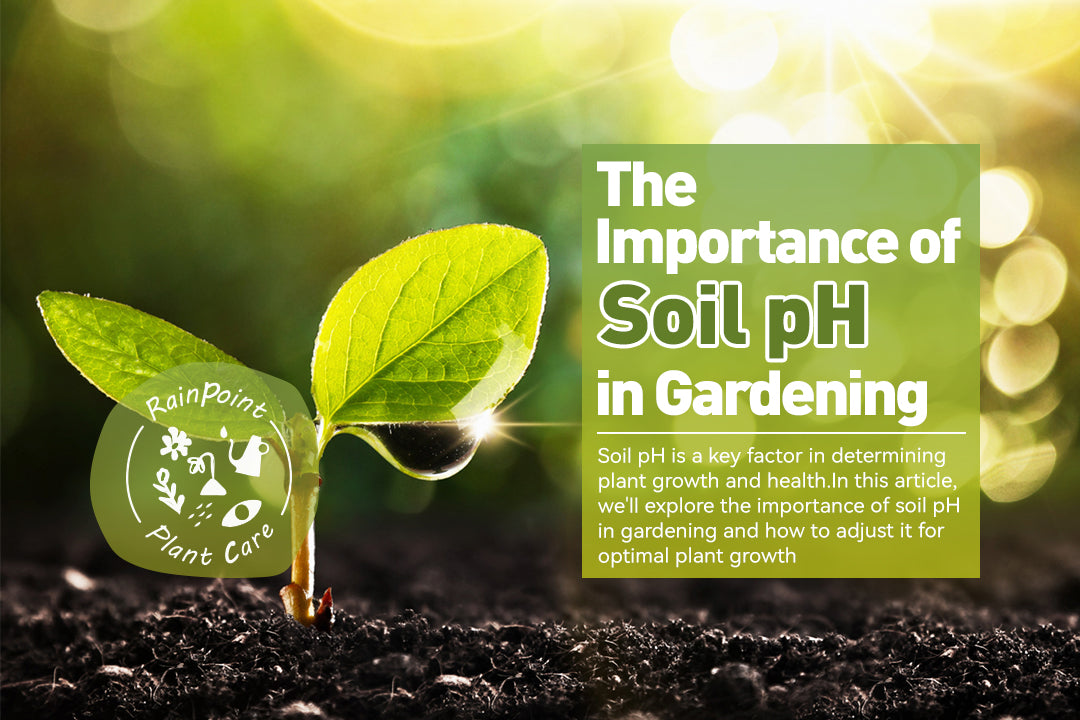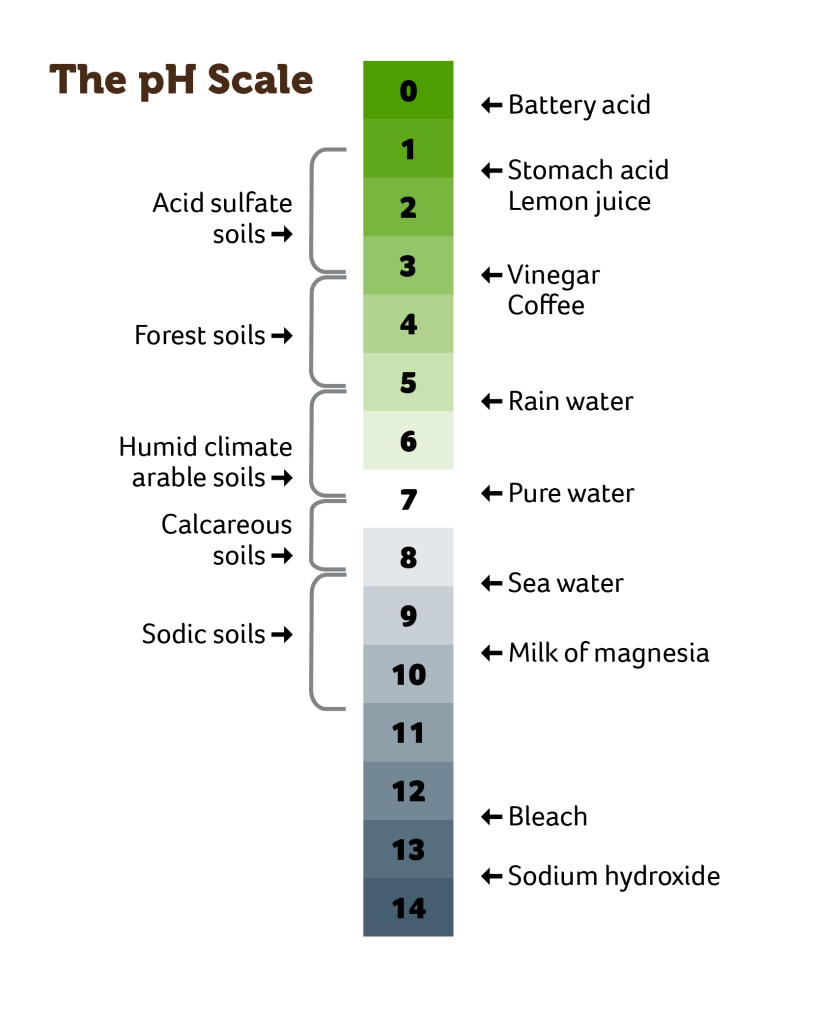Imagine the lush, vibrant fields of an organic farm. What’s the secret behind their thriving ecosystem?
It’s not just the absence of synthetic chemicals. The magic lies beneath your feet—in the soil. Specifically, the soil’s pH level plays a pivotal role in organic farming. You might wonder why this is so important for your crops. The answer is simple: the right soil pH can make or break your harvest.
It affects nutrient availability, microbial activity, and overall plant health. When you understand and manage soil pH, you unlock the potential for a more productive and sustainable farm. Let’s delve into how this small detail can transform your farming practices and boost your yield. Keep reading to discover the secrets of soil pH and its profound impact on your organic farming success.

Role Of Soil Ph In Plant Health
Soil pH plays a vital role in organic farming by affecting nutrient availability for plants. Proper pH levels ensure healthy plant growth and resistance to diseases. Balanced soil pH is essential for successful organic farming practices, promoting sustainable agriculture.
Understanding the role of soil pH in plant health is crucial for any organic farmer. Soil pH can significantly impact nutrient availability and uptake, directly affecting plant growth and productivity. Knowing how to manage soil pH effectively can make the difference between a thriving crop and a struggling one.Understanding Soil Ph
Soil pH measures how acidic or alkaline your soil is. It ranges from 0 to 14, with 7 being neutral. Most plants prefer a slightly acidic to neutral pH, around 6 to 7, for optimal growth. Soil pH affects the availability of essential nutrients like nitrogen, phosphorus, and potassium. If the pH is too low or too high, plants might not absorb these nutrients effectively. This can lead to nutrient deficiencies, even if your soil is rich in them.Influence On Microbial Activity
The pH level also influences microbial activity in the soil. Beneficial microbes thrive in a balanced pH environment, aiding in nutrient breakdown and absorption. If you’ve ever noticed your compost pile breaking down faster in the right conditions, soil pH plays a similar role in the ground.Effects On Plant Diseases
Certain plant diseases are more prevalent in soils with extreme pH levels. Adjusting your soil pH can help reduce these diseases. For instance, adjusting the pH can help manage clubroot in cabbage, a common problem in overly acidic soils.Practical Tips For Managing Soil Ph
Regularly test your soil to monitor pH levels. Simple pH testing kits are available at garden centers. Based on test results, add lime to raise pH or sulfur to lower it, ensuring your soil remains in the sweet spot for plant health. Have you ever thought about how soil pH might be affecting your garden? Taking the time to understand and manage it can lead to healthier plants and more bountiful harvests.
Impact On Nutrient Availability
In organic farming, understanding soil pH is crucial for nutrient availability. Soil pH affects how easily plants absorb essential nutrients. Nutrient uptake is influenced by the acidity or alkalinity of the soil. This directly impacts plant growth and health.
Impact Of Soil Ph On Nutrient Absorption
Soil pH determines the availability of nutrients for plants. Some nutrients dissolve easily in acidic soil. Others become available in alkaline conditions. Knowing the pH helps farmers manage nutrient levels effectively. Optimal pH ensures plants receive the nutrients they need.
Role Of Ph In Microbial Activity
Microbial activity is vital in organic farming. Soil pH influences the presence and activity of microbes. Acidic or alkaline soils affect microbial growth. Healthy microbes improve nutrient cycling. Balanced pH supports active microbial communities.
Effects On Specific Nutrients
Certain nutrients are pH-sensitive. Iron and manganese are more available in acidic soils. Calcium and magnesium thrive in alkaline conditions. Farmers must adjust soil pH for specific crops. Tailoring soil conditions improves nutrient uptake.
Consequences Of Imbalanced Ph
Imbalanced soil pH leads to nutrient deficiencies. Plants struggle to absorb necessary minerals. This hampers growth and yield. Monitoring and adjusting soil pH is essential. It ensures healthy plant development and sustainable farming.
Techniques To Adjust Soil Ph
Adjusting soil pH is crucial for organic farming success. Techniques include adding lime or sulfur to regulate acidity. Balanced pH ensures nutrient availability for healthy crops and optimal growth.
Adjusting the soil pH is crucial for the success of organic farming. It directly impacts the availability of nutrients and the health of your crops. Understanding and managing soil pH can lead to more productive and sustainable farming practices.Understanding Soil Ph Levels
Soil pH measures how acidic or alkaline the soil is. A pH of 7 is neutral, below 7 is acidic, and above 7 is alkaline. Most plants thrive in slightly acidic to neutral soil, around 6 to 7.Testing Your Soil Ph
Start by testing your soil’s pH. You can use a simple pH test kit available at garden centers. Testing gives you a clear idea of how much adjustment is needed.Using Lime To Raise Soil Ph
If your soil is too acidic, adding lime can help. Lime is a natural mineral that increases the pH, making the soil more alkaline. Apply it in the fall, giving it time to work by spring planting.Incorporating Sulfur To Lower Soil Ph
For alkaline soils, sulfur can be a game-changer. It gradually lowers the pH, creating a more acidic environment. Use elemental sulfur and mix it into the soil well.Applying Organic Matter
Organic matter, like compost, can buffer soil pH. It helps stabilize pH levels, making nutrients more available. Regularly adding compost improves soil structure and fertility.Using Wood Ash As An Alternative
Wood ash is a quick fix for acidic soils. It raises pH like lime but works faster. Be cautious not to overuse, as it can lead to high alkalinity.Monitoring And Maintenance
Adjusting soil pH is not a one-time task. Regular monitoring ensures that pH levels remain optimal. Keep a record of your tests and adjustments for future reference. Have you ever struggled with soil pH in your garden? Share your experiences and the techniques that worked for you. Your insights could be the missing piece in someone else’s farming puzzle.
Long-term Benefits For Organic Farms
Understanding soil pH is vital for organic farming. It offers numerous long-term benefits. Soil pH affects plant growth and nutrient availability. Maintaining the right pH ensures healthy crops. This section explores the lasting advantages of managing soil pH in organic farms.
Understanding Soil Health
Soil pH impacts soil health significantly. It influences the microbial activity in the soil. A balanced pH supports beneficial organisms. These organisms help decompose organic matter. They also improve soil structure and fertility. Healthy soil leads to thriving plants and better yields.
Improved Crop Yields
Proper soil pH boosts nutrient uptake. Plants absorb nutrients more efficiently. This results in improved crop yields. Farmers enjoy higher productivity with less input. Consistent yields support sustainable farming practices. They also ensure food security for communities.
Enhanced Nutrient Efficiency
Soil pH affects nutrient solubility. Nutrients become more available at optimal pH levels. This reduces the need for chemical fertilizers. Organic farms rely on natural nutrient cycles. Efficient nutrient use minimizes waste and cost. It also promotes environmental sustainability.
Resilience To Pests And Diseases
Balanced soil pH boosts plant resilience. Healthy plants resist pests and diseases better. They have stronger immune systems. This reduces the need for pesticides. Organic farms benefit from natural pest control. It also maintains biodiversity in the ecosystem.
Long-term Soil Sustainability
Maintaining soil pH ensures long-term sustainability. It prevents soil degradation and erosion. Farmers can use land for generations. Sustainable practices conserve resources. They protect the environment for future farmers. Soil pH management is key to lasting organic farming success.
Conclusion
Soil pH plays a crucial role in organic farming. It affects nutrient availability for plants. Balanced pH ensures healthy crop growth. Farmers need to test soil regularly. Adjusting pH can boost plant health. Organic methods help maintain soil balance. Natural composts and lime are effective.
They enrich the soil and aid pH control. Healthy soil leads to better yields. It supports biodiversity on farms. Understanding pH helps improve farming practices. Sustainable techniques benefit both soil and crops. Organic farming thrives on balanced soil. So, pay attention to soil pH.
It’s vital for successful farming.



